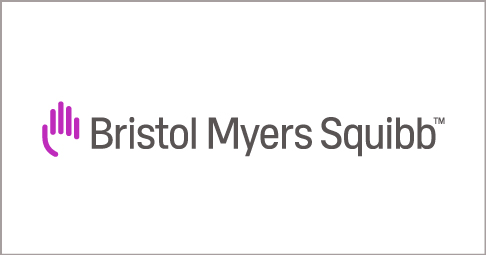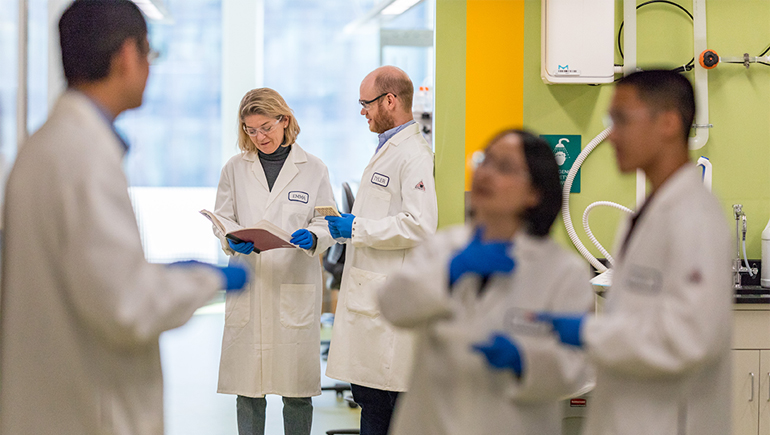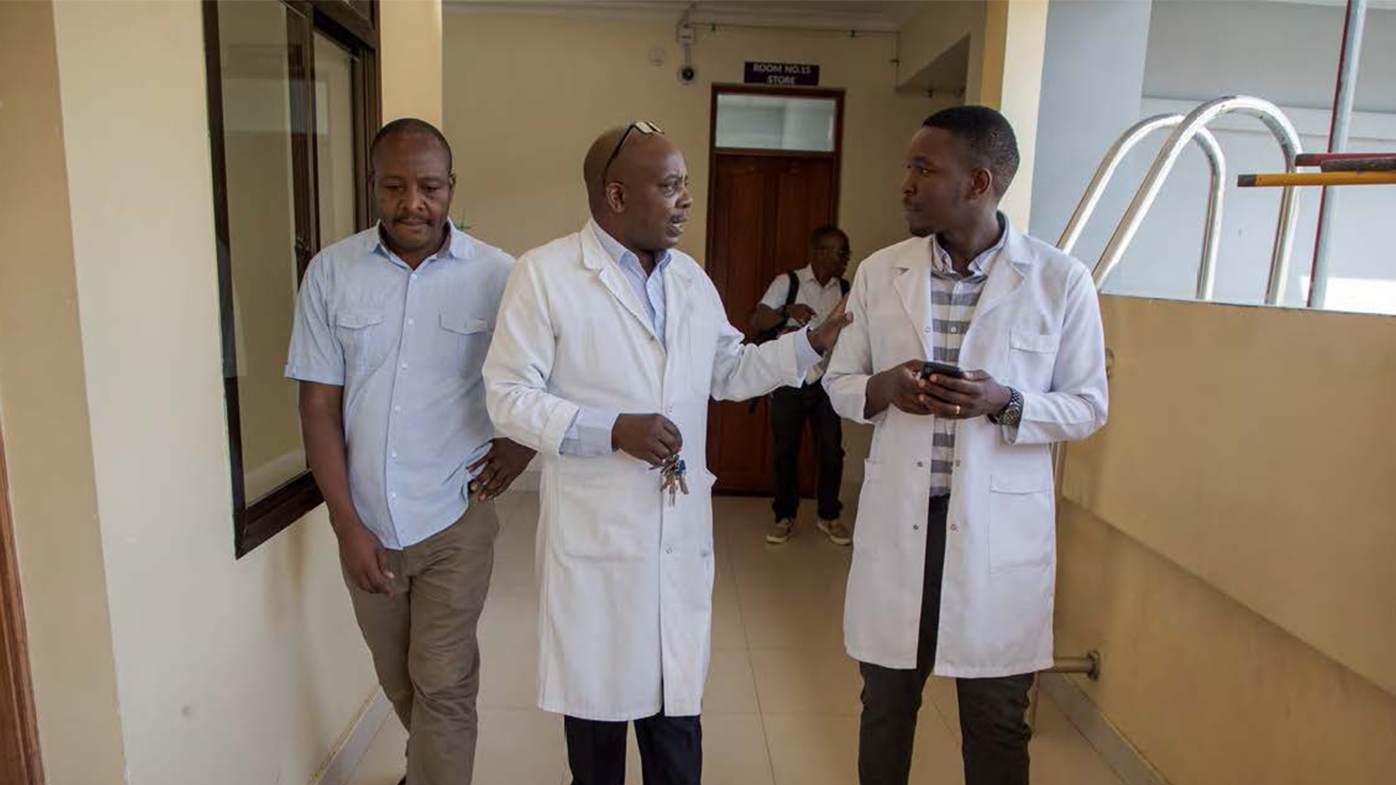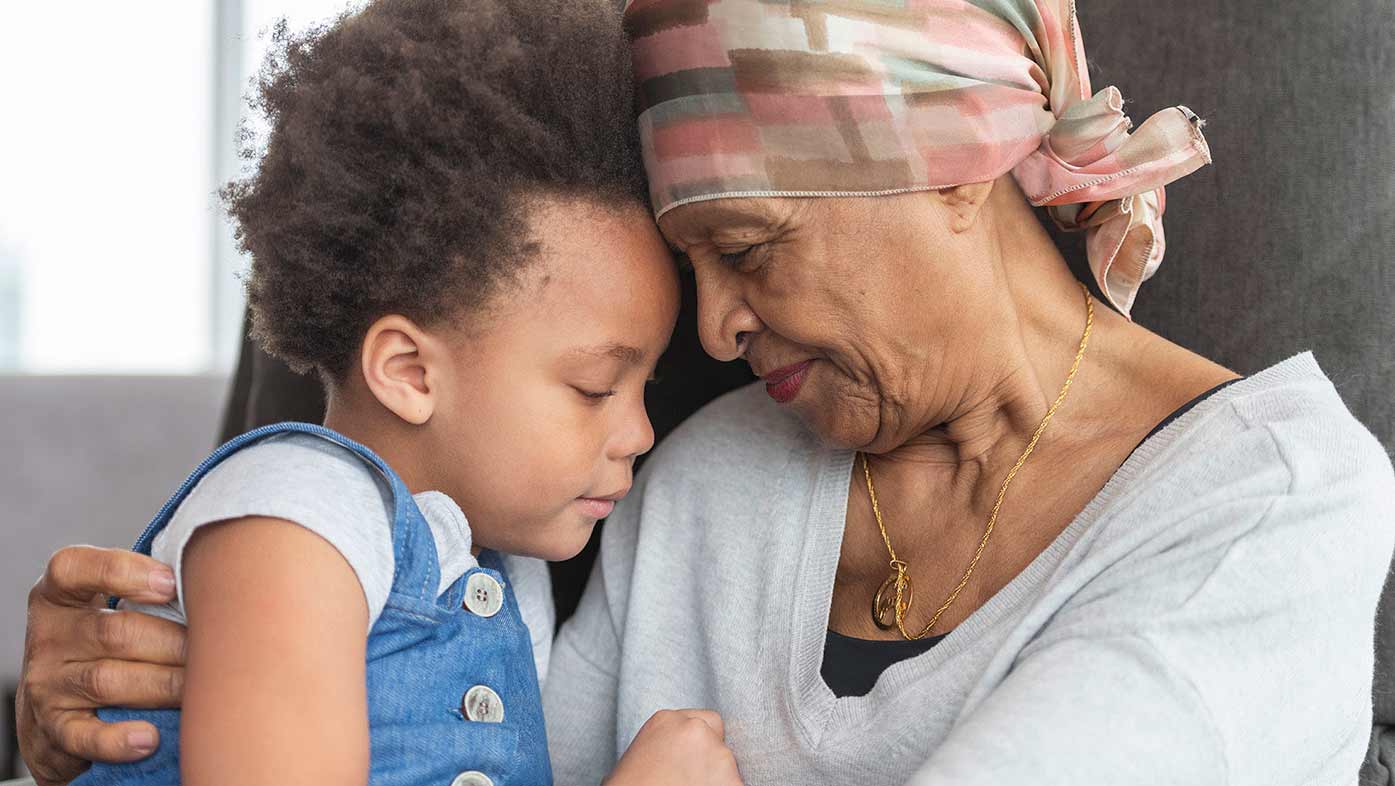The site itself, constructed in 2018, was built for collaboration. From seating charts to lab configurations, each detail of the building was planned to foster increased communication and exploration.
“We have an open office setting where people from different functions and groups are intermingled,” says Sharon Cload , vice president, molecular discovery technologies. “Additionally, the lab space is not set up in silos, it's set up to be integrated. We have chemists next to molecular biologists, next to protein chemists, and so on.”
This integrated structure, Cambridge leaders say, helps in the swift sharing of ideas.
“Where we differentiate ourselves from other biopharma companies is we are operating like a biotech company – being nimble and savvy in how we approach things, but with the clout of a large pharma resource behind us,” says Michaela Bowden, director, translational biology. “The hope is that we can do things with a speed that will really push the needle forward for patients.”
But the collaborative spirit doesn’t end when you walk out the doors of 100 Binney Street. Bristol Myers Squibb’s Cambridge location also presents scientists with an ever-growing number of potential partners.
“Bristol Myers Squibb Cambridge is different because being in the heart of this life sciences ecosystem allows us to leverage partnerships within academia, research institutions, the hospital setting and biotech companies,” Bowden says. “Each of these potential partners has niche scientific or technological capabilities that may help us continue to drive research forward to find answers for patients with critical unmet need.”




